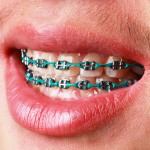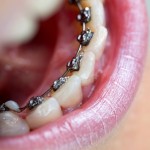
Sarah McDonald asks: What happens after treatment? She summarises a recent systematic review of relapse, remission, and recovery in anorexia nervosa.
[read the full story...]
Sarah McDonald asks: What happens after treatment? She summarises a recent systematic review of relapse, remission, and recovery in anorexia nervosa.
[read the full story...]
Thomas Richardson writes his debut blog about a recent prospective analysis of poor medication adherence and risk of relapse associated with continued cannabis use in patients with first-episode psychosis.
[read the full story...]
Factors affecting relapse after treatment of class II malocclusion was investigated in this review. Only 17 retrospected studies met the review criteria providing limited evidence to support the influence of factors predictive of sagittal stability following orthodontic treatment.
[read the full story...]
This review focused on lingual orthodontic retention including 27 studies (9 RCTs; 6 prospective and 12 retrospective studies). However, the quality of evidence was low, providing little evidence for the best treatment protocols.
[read the full story...]
Raphael Underwood reports on a thematic analysis of joint crisis plans, which explores what service users with psychotic disorders want in a mental health crisis or relapse.
[read the full story...]
The tendency for teeth to return to their pre-treatment following orthodontic treatment (relapse) is more common for the lower front teeth. Ten years after orthodontic treatment between 30-50% of patients no longer have the initial post-treatment alignment and after 20 years only 10% maintain that alignment. The aim of this review was to assess the [read the full story…]

Here at Mental Elf HQ we’re expanding our skill set to include economics. Understanding the best way to value health and health care, and improving health outcomes with budget constraints in mind, are the key pastimes of economics elves. We hope to bring you the latest economic evidence in the field of mental health and to [read the full story…]

NICE Guidelines state that around three quarters of people with a diagnosis of schizophrenia experience a chronic illness: with recurrent episodes of remission and relapse. One way that chronic physical health conditions, such as diabetes and heart disease, are managed is by using early warning signs (EWS) training and this prevention strategy is now often [read the full story…]

More than 25% of patients with cleft lip and palate (CLP) develop hyperplasia of the maxilla that requires surgical correction. This surgery is usual occurs in the final phase of their CLP treatment and is typically a Le Fort I osteotomy. The aim of this review was to assess the long term stability of this [read the full story…]